What is a Deductible?
Your health insurance deductible is the amount of money you have to pay yourself before your insurance starts helping with medical bills. Basically, it’s the first part of the cost you are responsible for. Once you pay that, the insurance company will start paying part of your medical costs. Knowing how much you’ll have to pay can help you plan for doctor visits and other medical expenses.
What is Coinsurance?
When you sign up for health insurance, you might come across words that are confusing. One of those words is “coinsurance,” which is different from a copay. Coinsurance is an important part of how the costs are shared between you and the insurance company. Knowing how your coinsurance works helps you make smart choices about your health care.
What is a Copay?
Copayments, or copays, are amounts of money you pay when you get medical care, and they are part of many health insurance plans. Knowing how your copay works can help you plan your money, avoid unexpected costs, and stick to your budget.
What is an Out-of-Pocket Maximum?
Your out-of-pocket maximum is the most money you’ll have to pay for medical care in a year. It helps protect you by limiting how much you spend, especially if you need a lot of treatment. Knowing what your out-of-pocket maximum is can help you plan your budget and manage medical costs better.
What is a Premium?
A premium is the yearly cost for medical insurance is divided up so you pay a bit each time you get paid. This money is taken out of your paycheck before taxes are calculated.
What does In and Out of Network mean?
Understanding the difference between in-network and out-of-network doctors can save you money. Usually, if you go to an in-network doctor, your health care will cost less. You can still get some coverage with an out-of-network doctor, but it will cost more. Since your insurance company treats in-network and out-of-network doctors differently, your bill will be different depending on which one you choose.
Who is Eligible?
Full-time workers who work at least 30 hours a week; Your husband or wife; Your biological children, stepchildren, or adopted children up to age 26; Your children of any age if they rely on you for support because of a physical or mental disability (you might need to show proof).
What do I need to consider for Open Enrollment?
When picking your insurance, check the benefits you can choose and decide what’s best for you and your family. How much do you want to put into a health care account that goes with your medical plan? Do you need dental or vision insurance? Do you need to include your family members in your insurance? Do you want extra life or disability insurance? Are there any big life changes coming up, like having a baby, getting married, or a child going to college, that might affect your benefits?
Are you a New Hire?
When you first become eligible for our benefits, you need to either sign up for them or choose not to. If you don’t sign up for yourself and your family when you first can, you will have to wait until the next open enrollment period to get coverage.
When does coverage begin for New Hires?
Your insurance coverage starts on the first day of the month after you’ve worked for 30 days. You need to be working for your coverage to begin.
An Important Reminder
After you sign up for insurance, if you get married, have or adopt a baby, get divorced, or have another big life change, you need to let HR know within 30 days. To find out who can be on your insurance plans, check out our employee benefit guide.


